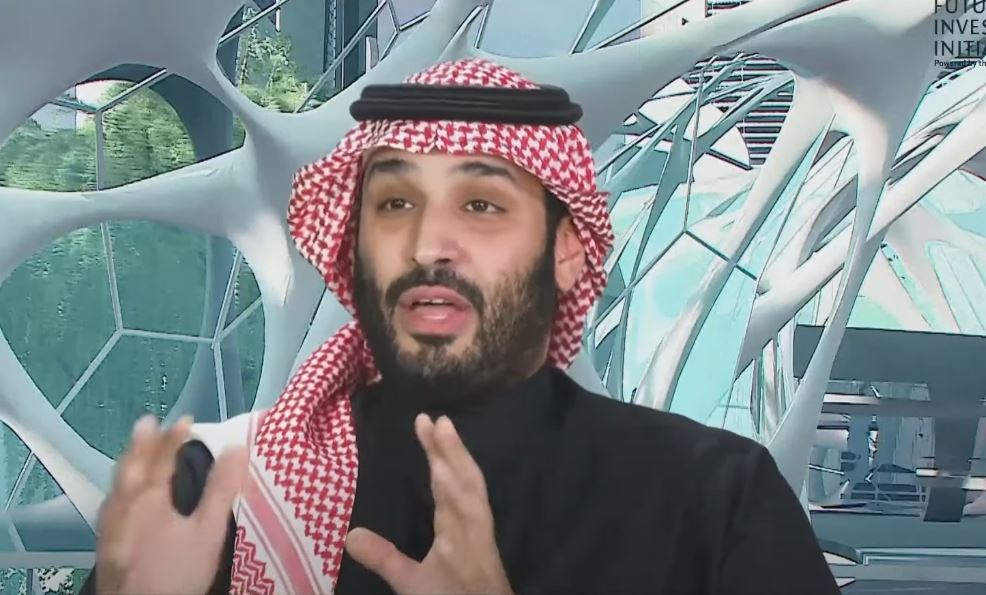
Both Mohammed bin Salman’s personal assets and the astounding wealth of the Saudi royal family as a whole make up his extraordinarily complicated fortune. His family’s combined wealth is estimated to be over $1.4 trillion, an almost unthinkable amount that makes even Elon Musk’s or Jeff Bezos’s valuations seem remarkably modest. Analysts place his private fortune between $5 billion and $25 billion.
His lifestyle choices have continuously garnered attention over the last ten years. He purchased Chateau Louis XIV, a $299 million French palace known for its beautiful chandeliers and fountains, in 2015. A Russian tycoon once owned the superyacht Serene, which he reportedly paid $500 million for in 2017. In the same year, he was connected to the historic $450 million acquisition of the enigmatic and prestigious painting, Leonardo da Vinci’s Salvator Mundi. Every purchase was a conscious symbol of influence as well as a personal indulgence, putting him in discussions typically reserved for Silicon Valley titans, Hollywood tycoons, and art collectors.
| Category | Details |
|---|---|
| Full Name | Mohammed bin Salman bin Abdulaziz Al Saud (MbS) |
| Date of Birth | August 31, 1985 (Age 40) |
| Birthplace | Riyadh, Saudi Arabia |
| Title | Crown Prince, Prime Minister of Saudi Arabia |
| Estimated Net Worth | $5 billion (Celebrity Net Worth) to $25 billion (Times Now) |
| Family Wealth | The Al Saud dynasty estimated at $1.4 trillion |
| Education | Law degree, King Saud University |
| Spouse | Princess Sara bint Mashour Al Saud |
| Children | Five |
| Key Roles | Architect of Vision 2030, Former Minister of Defense |
MBS has been able to achieve goals that go well beyond conventional royalty by taking advantage of Saudi Arabia’s enormous oil wealth. Investing hundreds of billions in biotechnology, renewable energy, and futuristic cities like NEOM, his Vision 2030 plan seeks to significantly lessen the country’s reliance on oil. MBS combines his wealth with state-led change, in contrast to celebrity billionaires who frequently portray their businesses as instruments for innovation. Because it reflects both national aspirations and private prestige, his financial footprint is especially innovative.
His wealth, according to critics, is largely derived from Saudi Arabia’s sovereign resources, but supporters say his role is remarkably similar to the disruptive energy of tech founders. MBS discusses creating a city where flying taxis and AI governance may be commonplace, while Musk discusses colonizing Mars. The distinction is in support: MBS has the remarkably robust base of oil reserves and sovereign funds, whereas Musk’s empire fluctuates in tandem with Tesla’s stock price.
His actions have not always been free of controversy. His anti-corruption campaign stunned the world in 2017 when he arrested dozens of prominent royals and business magnates at the Ritz-Carlton in Riyadh. Officials reported recovering $107 billion, and many were only freed after giving up substantial assets. The episode demonstrated his ability to combine political and financial power in ways that are remarkably different from those found in Western systems, where billionaires are rarely deprived of their wealth overnight.
Additionally, his wealth has a significant impact on celebrity and culture. His meetings with Michael Bloomberg, Mark Zuckerberg, and Hollywood heavyweights demonstrate how his financial clout permeates the entertainment and media industries. In the same way that Elon Musk purchased Twitter to increase his influence or Jeff Bezos purchased The Washington Post, MBS uses his money to position Saudi Arabia as a center for investment and culture. His actions, like allowing women to perform on stage or reopening movie theaters after 35 years of prohibition, demonstrate how his financial influence is closely linked to social change.
His wealth has symbolic significance for the people of Saudi Arabia. Expensive purchases convey strength and ambition even though they may seem extravagant. International music festivals in Riyadh, stadiums that allow female fans, and women driving have all emerged as indicators of a changing society in recent years. As a result, his wealth is a reflection of both personal luxury and a changing sense of national identity that strikes a balance between traditional values and contemporary goals.
His wealth is inextricably linked to Saudi Arabia’s larger role in geopolitics and energy from a global standpoint. MBS has utilized his resources to establish alliances that influence markets well beyond the Middle East, such as partnering with China on trade and technology or aligning with Russia on oil production quotas. Saudi investments have reached SoftBank’s Vision Fund, Uber, and even international sports teams through the Public Investment Fund (PIF), which has a total value of over $700 billion. In many respects, these investments turn his wealth into a diplomatic tool that has far more clout than typical celebrity wealth.
His story is especially interesting because of the smooth transition between political and personal wealth. MBS’s billions come from his governance, in contrast to Taylor Swift, who built her empire on music and branding, or Lionel Messi, whose wealth is based on endorsements and contracts. The scale of the comparison is remarkably similar, but the mechanics are very different. For famous people, fame comes after fame. For MBS, power is guaranteed by luck.
However, there are some dark sides to his financial story. Journalist Jamal Khashoggi’s 2018 assassination left a lasting impression on the world and served as a reminder that extreme wealth and serious human rights issues can coexist. Because of this dichotomy—authoritarian on the one hand, reformist on the other—an examination of his wealth is both intriguing and delicate.
